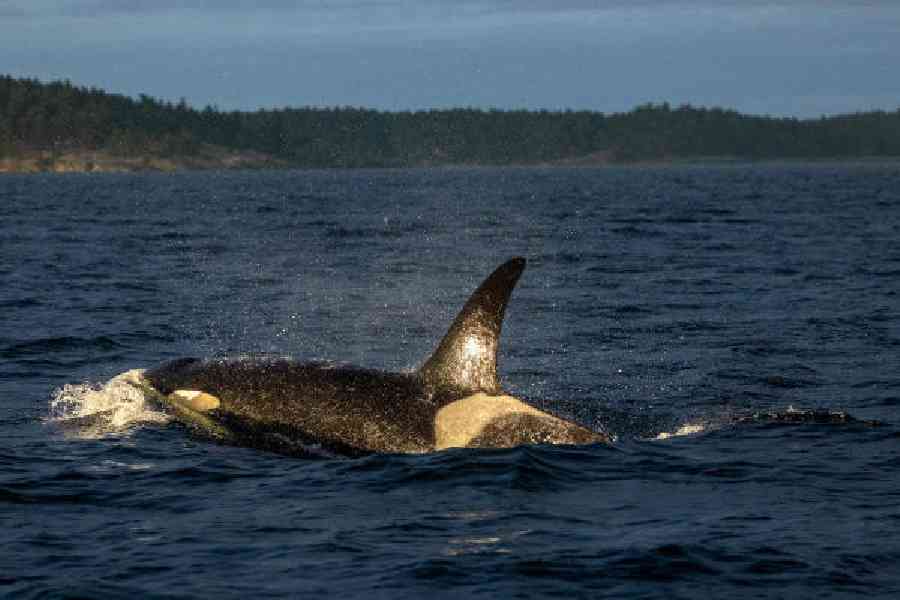Menopause is all too familiar to women, but in other species it’s remarkably rare. Aside from chimps and humans, researchers have found clear evidence of menopause in only five species — all of them whales.
In a new study looking at the biology of the five whale species, researchers argued that menopause gave the animals an evolutionary advantage. For example, it could have prevented older females from being pregnant at the same time as their daughters, avoiding resource conflicts that would hurt both of their offspring.
Samuel Ellis, a biologist at the University of Exeter, US, who led the study, published in Nature, said whales may have evolved menopause for the same reasons that humans did.
In the vast majority of species, females keep producing eggs throughout their lives. That pattern makes sense in terms of natural selection. The more offspring that a female can successfully raise throughout her life, the more copies of her genes get passed down to future generations. Even long-lived females typically fit this pattern: female elephants, for example, stay fertile into their 60s.
Five whale species — killer whales, false killer whales, beluga whales, short-finned pilot whales and narwhals — don’t fit that pattern. Female killer whales, for example, generally breed only until about age 40, but can survive into their 90s.
Killer whales are easier to study: they often swim in coastal waters and spend a lot of time on the surface. But the other menopausal species live far from shore and spend a lot of time diving.
Ellis and his colleagues tried to squeeze insights from data experts have already collected. Sometimes groups of whales wash ashore in mass strandings, for example. As marine biologists examine them, they make estimates of their age and perform autopsies on the females to see if they are pregnant or still producing eggs.
Ellis and his colleagues collected data for the five species of menopausal whales, along with 27 related species that don’t go through menopause, such as dolphins and sperm whales. Using statistical equations, Ellis and his colleagues estimated the average life span of the whales, the number of offspring they produce and how long they remain fertile.
In the species that don’t go through menopause, female whales fit the same trend: bigger whales tended to live longer.
A different pattern emerged among the five menopausal species. The female whales stayed fertile for as long as you’d predict for a whale their size. But they then lived, on average, for 40 years beyond their predicted life span.
This finding suggests that menopause did not evolve thanks to mutations that shortened the reproductive years of the whales. Instead, natural selection must have favored mutations that added more years to the animals’ life after their reproduction stopped.
So what sort of evolutionary advantage could have come from these new reproductive behaviors? One possibility is that older females no longer give birth at the same time as their own offspring are giving birth. That way, they don’t come into conflict. In the long term, the researchers suggest, avoiding this conflict would allow the menopausal whales to pass down more of their genes.
Instead of coming into conflict with their offspring, the older female whales could provide help. In previous studies on killer whales, researchers have found that older females lead their pods on long journeys. In studies of people, too, researchers have found that grandmothers can provide extra food that raise the odds of their grandchildren’s survival.
The fact that only five whale species are known to have evolved menopause suggests it can only be gained under certain circumstances. Ellis speculated that a species needs a particular social life, in which females stay in a group for a long time and are closely related to younger members of the group.
Rebecca Sear of the London School of Hygiene and Tropical Medicine, who was not involved in the study, said this is plausible, but also pointed out that they could analyse relatively few whales.
“It’s really interesting and informative, but it does not provide conclusive evidence on why menopause evolved at all,” said.
NYTNS










